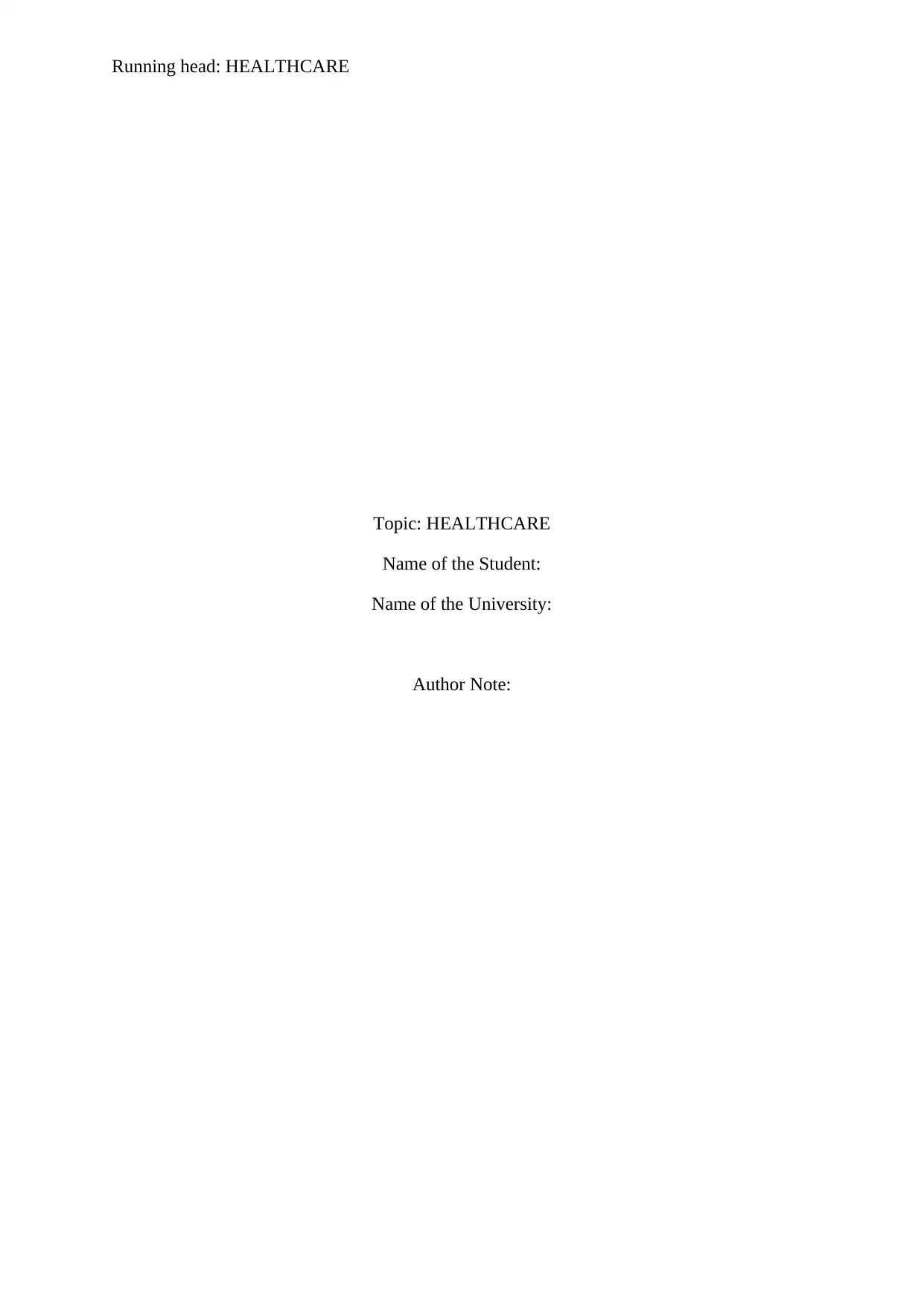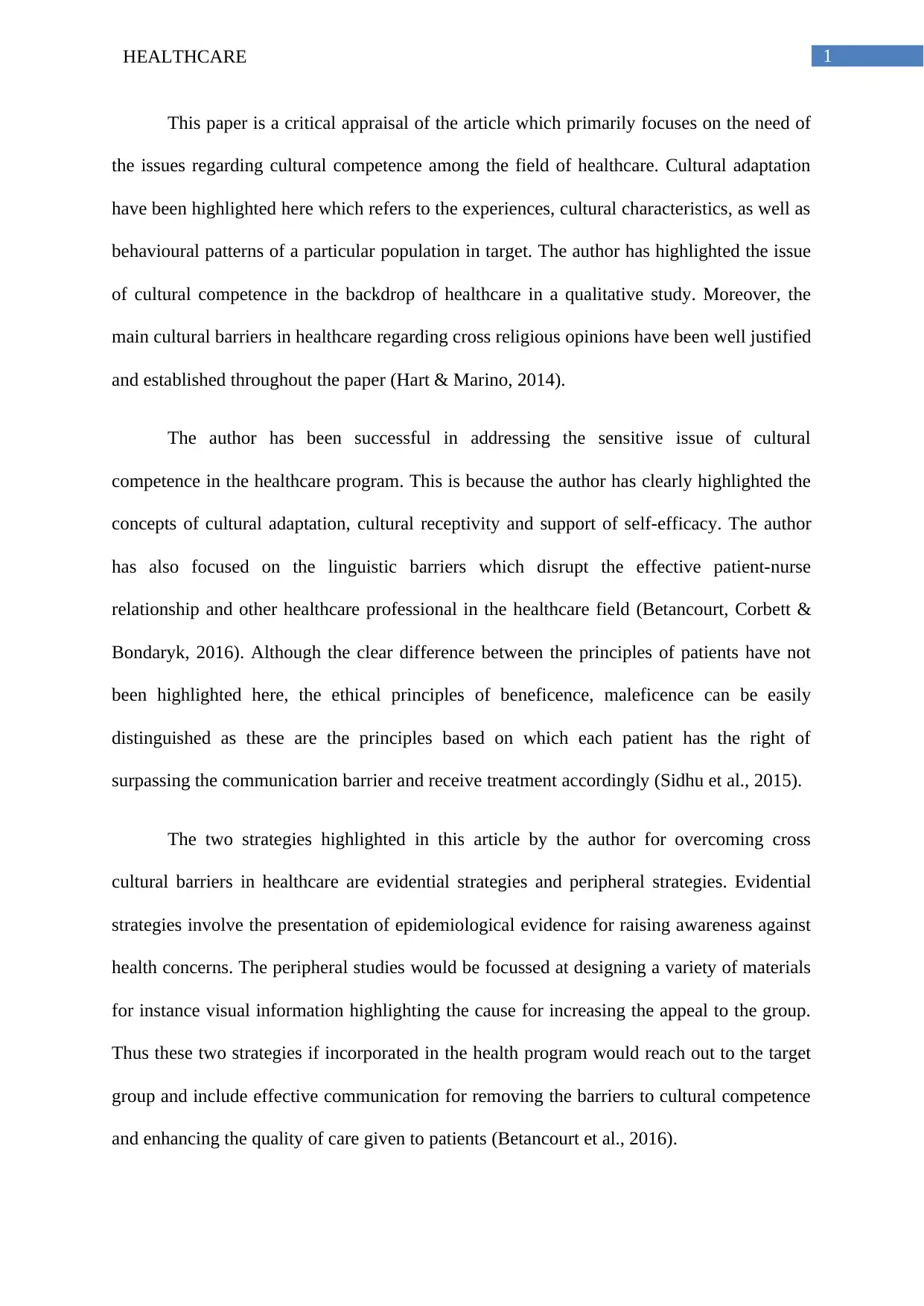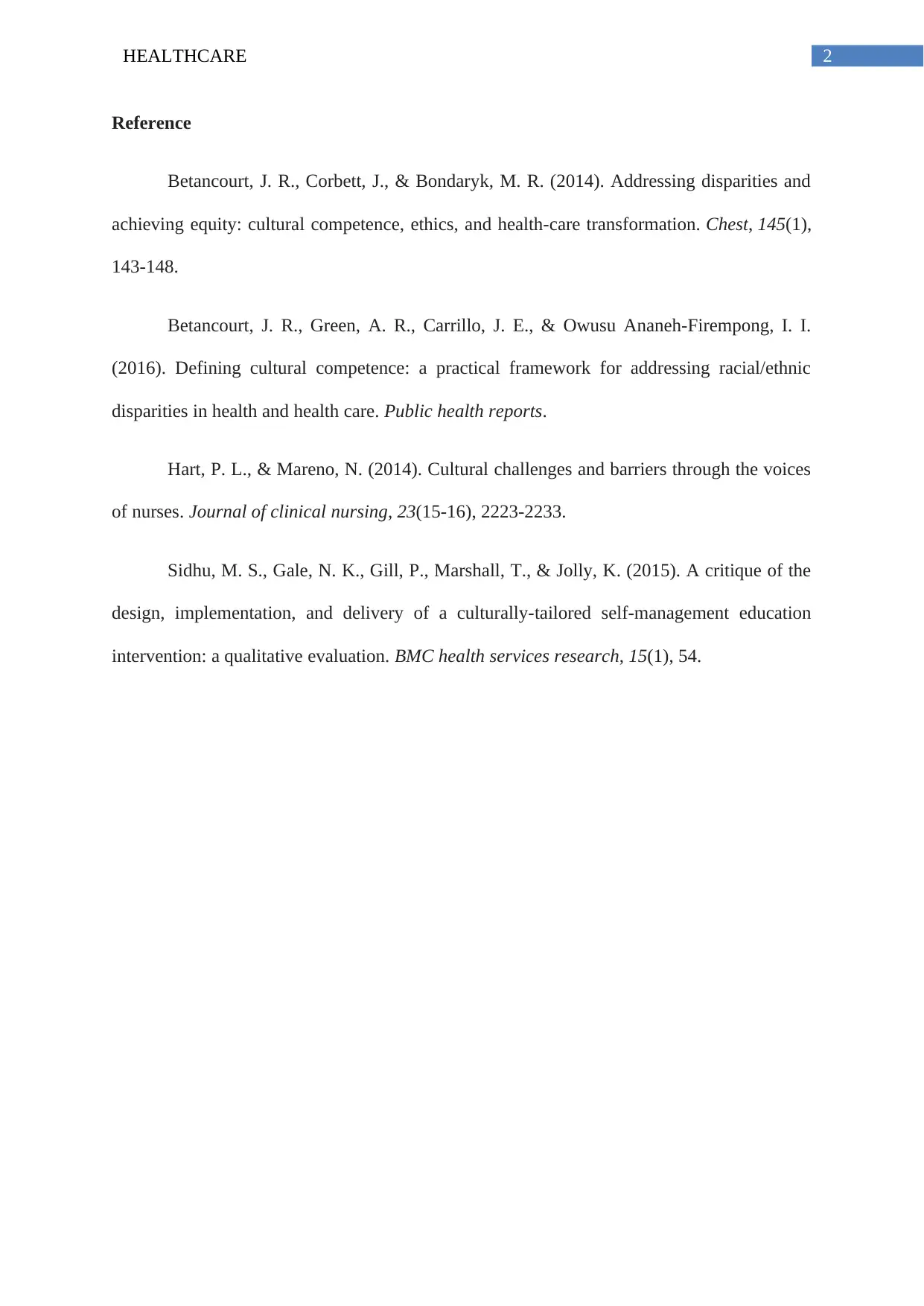Evaluating Cultural Competence in Healthcare Program: A Report
VerifiedAdded on 2023/01/19
|3
|549
|33
Report
AI Summary
This report critically analyzes a healthcare program's cultural competence, as discussed in the provided article. The analysis focuses on whether the program effectively addresses cultural barriers, such as communication issues and differing patient beliefs, and if it adequately incorporates cultural adaptation and patient-centered care. The report assesses the program's strengths and weaknesses regarding its approach to cross-cultural communication, and the program's incorporation of ethical principles like beneficence and maleficence. The report also offers two strategic recommendations for enhancing the program's cultural competence. These strategies include implementing evidence-based initiatives to raise awareness about health concerns and developing culturally sensitive informational materials. The analysis utilizes insights from the article to evaluate the program's approach to cultural competence and propose ways to improve patient care.
1 out of 3










![[object Object]](/_next/static/media/star-bottom.7253800d.svg)